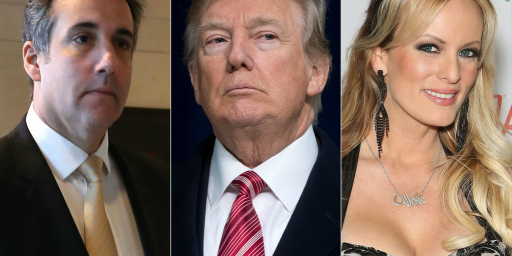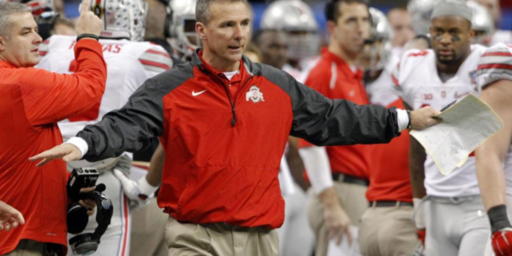The Micro Economics of the Financial Crisis
The Financial Crisis was not a problem of macroeconomics, but a cluster of microeconomic problems all acting together.
One of the things about the Financial Crisis is that it was not really a macro economic problem, but a conglomeration of micro economic problems. These micro economic problems are all incentive problems. These incentives problems were spread throughout the financial system.
One incentive problem was the reduction in mortgage down payments to make housing more “affordable”. Consider the following example to highlight the problem. A family, the Smiths, want to buy a house for $100,000. Normally the Smith’s would have to have a down payment of $20,000. But with a reduction in the required down payment to help make housing more affordable, the Smith’s only have to come up with 5% or $5,000. But this lower down payment increases the likelihood that the Smith’s will default on their loan. Suppose after buying the house with the 5% down payment, but housing prices drop and the house is now worth $90,000. Yet the Smith’s are paying on a loan of $95,000. Unless there is an expectation that housing prices will start going up again the Smith’s now have an incentive to walk away from house. And this leads to another incentive problem.
Most mortgages are non-recourse loans. A non-recourse loan is one where if the borrower defaults the only option the bank has it to take possession of the house. They cannot take the Smith’s car, garnish their wages or seize any other assets. The Smith’s credit score can take a hit, bit aside from that the lender has no other recourse hence the term non-recourse. So, there is an incentive to bail on a house that is underwater than to try and stick it out to avoid even worse financial outcomes.
Of course, if housing prices are going up, none of this is not much of an issue. If the Smith’s buy their house and then a year later it is worth $110,000 they now have $15,000 in equity and they are less likely to default. The more the house appreciates the less likely they are to default.
This is the kind of incentive that made Mortgage Backed Securities (MBS) less desirable when the housing market stopped going up and prices reversed course. Suddenly all those people who were securitizing mortgages were looking at having to buy back mortgages that may have looked good initially…given that housing prices would continue to go up. Then factor in the effects of credit default swaps and now you are looking at a problem of systemic risk–i.e. risk that the entire system might come crashing down.
Another incentive problem was the “too big to fail” or more accurately the “too interconnected to fail”. Imagine we have 3 banks. The Bank of the U.S., The Bank of New York, and the U.S. Bank. The U.S. Bank has been rather imprudent. They have been underwriting and securitizing mortgages that are not very good, but so long as housing prices go up, they look good. Then housing prices stop going up and the U.S. Bank is holding many of the loans it underwrote. But as these mortgages start to fail and the U.S. Bank is seeing it’s capital requirement start to head below the regulated levels, so they have a couple of options, try to sell assets, these dubious MBS, or go and beg for a bail out from Uncle Sugar. Uncle Sugar brings in the executives of U.S. Bank and here is their story.
“Uncle Sugar, you have to come up with a rescue plan. You see, if you don’t we’ll be forced to sell these MBS at fire sale prices, and while that is really bad for us, think about the Bank of the U.S. and the Bank of New York! They hold quite a few MBS, some we originated, and some they originated. But if we fire sale, well the value of their MBS will decrease and they could be in trouble with regards to their capital requirements, necessitating another fire sale!! The whole system could collapses!!!”
It is a compelling story because it is a scary story. Yes, as the imprudent Bank of the U.S. dumps MBS on the market the prices for all MBS could decline. Leading to liquidity problems for the Bank of the U.S. and the Bank of New York. But if the Uncle Sugar, aka the government, bails out the U.S. Bank they are sending a very clear signal–imprudence will not be punished…so be imprudent and rake in the big salaries and bonuses when times are good and we got your back when they are bad.
Capitalism is a profit and LOSS system. If you get rid of the losses via government protecting people from imprudence you simply get more imprudent behavior. Over 140 years ago Walter Bagehot noted this in his book Lombard Street. He noted that when a bank is sound, but illiquid the central bank should lend to such a bank at a suitably high enough interest rate. However, when a bank is not illiquid, but insolvent…you let that bank fail. The failure of that bank will send a clear and unambiguous signal: imprudence will kill your business. During the 2008 Financial Crisis the U.S. and Fed pretty much guaranteed everything. Not just deposits, but everything. Such an approach does not stabilize the financial system in the long run…it makes the financial system less stable as people realize that being imprudent is actually good for the bottom line because you are backed by the full faith and credit of the American taxpayer. Oh…and if you think this is capitalism…well you are retarded. This is crony capitalism. Go look where little Timmy Geithner, Obama’s former Secretary of the Treasury, is working these days.






The institutions generating the loans — the banks, etc — were also not required to hold any of the value of the loan. This meant that so long as they were able to repackage the loans and MBSs, they were able to take a percentage of the entire transaction, and not have any of the risk.
Traditionally, the banks are the ones who would verify that a person has a reasonable chance to pay back the loan, but now they had no incentive to do so. They make their cut, they sell off the securities. Another company (or the same) will end up servicing the loan on behalf of the owners of the securities, and they too will take a cut.
Not that this was the critical problem without which none of this would have happened, but everywhere in the process you look, you will see that the incentives are all in the wrong place.
Bear was allowed to fail according to this very hypothesis and triggered a financial panic which microeconomic theory tells us should not have occurred. Bad as the state of macroeconomics is currently, it can at least provide an explanation of this behavior.
@Ben Wolf:
I think you meant to say Lehman, but I agree with your point. The above article is a grossly simplified piece of Libertarian silliness.
Here’s a research project for you:
a. Look up how many depressions that the US experienced when it had a strong central bank and a federal government that was inclined to bail out the banking system when it failed.
b. Look up how many depressions that the US experienced when it had no central bank and otherwise didn’t bail out the banking system when it failed.
Compare (a) to (b). [Hint: (b) is a much higher figure.]
The moral of the story: Libertarian economic theory is more utopian than it is practical, exhibiting little to none of the insight into human behavior that it claims to have.
@Gustopher:
The vast majority of the problematic loans which underpinned the financial crisis were written by mortgage brokers, not banks, with the understanding that they would be sold on to investment banks in fewer than 30 days. I bring that up mainly to point out that CRA, which people seem to love to blame for the problem, had nothing to do with the preceding scenario. CRA doesn’t apply to mortgage brokers, and it doesn’t apply to investment banks.
Those same investment banks packaged, sliced up and resold those mortgages through MBSes. Had that been the extent of the activity in this crisis, there arguably never would have been a crisis to begin with. The default spread just wasn’t large enough within the context of the mortgage pool itself to take down more than Bear, at most. Even Lehman would probably have survived it.
Enter the CDO, and even better, the synthetic CDO, coupled with our friend the CDS.
The basic problem which caused this crisis was Wall Street inventing a product it didn’t really understand and which it had a great deal of difficulty valuing. That threw any premise of realistic risk management out of the window, and allowed the accumulation of truly catastrophic levels of risk. Along come the underwriters, who didn’t remotely understand the products either and who as a result cheerfully wrote insurance on default exposure positions greater than the value of their entire companies. Investment banks happily used that insurance to reduce their reported risk position, allowing for the accumulation of even more leverage and more risk.
And the government couldn’t have done anything about it even if it had wanted to (I don’t get the impression that it did) or even understood what it was ostensibly supposed to regulate in that scenario (I’m quite certain that it didn’t) because of a cute piece of legislation called CFMA 2000, which forbade the regulation of those products discussed above in the first place.
So, to the author’s supposed point, this entire mess was caused by a willful (on the part of Congress) failure of regulatory oversight. Wall Street created a monster it didn’t understand, which it couldn’t value in terms of anything beyond mark to market fantasies and which allowed it to magnify risk hundreds, if not thousands of times beyond the scope of its actual mortgage activities. The government helped in that regard by creating the regulatory environment (or I should say the lack of a regulatory environment) in which this insanity could flourish.Nobody cared about the risk exposure, or at best they convinced themselves that everything was OK in that regard, because they were making too much money.
This passage alone tells me that you understand little about the financial crisis and what caused it, because it presumes (as LIbertarians tend to do) that banks exist within the confines of a vacuum delineated by their own balance sheets. That has never been the case due to counterparty risk.
That delightful concept is why allowing Lehman to fail threatened to take down the entire financial system. The swaps from Lehman alone would have taken down AIG, which held the bulk of the swap exposure across the market and which couldn’t have paid all of the resulting claims if it had sold the entire company right down to the doorknobs.
So when default triggers within the MBS pool were hit (further triggering default triggers within the CDO and synthetic CDO pools), AIG has to pay, AIG can’t pay, AIG goes under.
Every OTHER bank they insure then books massive losses, all on the same day, and THEY all go under. The entire system goes KABOOM, and we’re in a Depression.
If you truly think that’s a desirable outcome, you aren’t worth taking seriously. If, on the other hand, you’d like to reevaluate your position, you probably can’t be a Libertarian any longer. The floor is yours.
What gripes me about this kind of theorizing is that forgotten in the theoretical is that there are real people with real families and real jobs. To let it all collapse because of some ideology is just wrong. There is noting wrong with the collective (i.e., government) bailing out specific aspects of the economy if it saves pain for the many. Even if it benefits the culprits.
Unfortunately, there are people who still believe the solution was Andrew Mellon’s”
“liquidate labor, liquidate stocks, liquidate farmers, liquidate real estate”
It was wrong then. it is wrong now.
I’m not an expert in economics, but it seems to me that not letting the banks fail was the right thing to do … however, we really should have done something similar to/with them as we did with GM. Take it over, wipe out the shareholders, fire the board, break them into smaller solvent entities, then sell those back into the private market.
Only a pedant would attribute to the author of the article some of the positions being cited by commenters. He was only illustrating the adverse incentives in play.
You would have more credibility if you would have said a precipitous workout was dangerous to the system, but an orderly restructuring which included wiping out claims starting at the bottom of the cap structure, and limits on management compensation was warranted. As it turns out, the connected banks and bankers got off basically free. This leaves the same adverse incentives in place. Playing with other people’s money always does. I would note that less than 20% down loans are back and subprime lending in autos is propping up that industry. And there you have it. If I was a cynic I’d say HRCs coziness with large financial institutions, and her husband’s signing of GS repeal are causing this sudden sympathy for the banks here. If I was a cynic…..
As for a couple random items in comments. The banks did not completely syndicate out loans. They had enough on balance sheets to hurt. Also, the notion that no one understood the securities is absurd. They were sliced and diced into everything from true AAA tranches to very risky pieces. Pieces that the investors in them knew were risky; but they wanted the yield. The mistake was a credit mistake – that the underlying cash flows would not decline – not that they didn’t understand what was going on.
I understand why the bailout was necessary. What I don’t understand is why there was no price to pay. The big banks were not broken up but used bailout money to get even bigger. The ratings agencies that gave AAA ratings to massive tottering piles of CDO garbage got even more powerful. No one’s career was destroyed. No on went to jail for what became clear fraud toward the end of the mess, when they insisted that their CDS’s and CDO’s were still worth way more than they were actually worth (and they knew it). This is one of those times where it really does feel like there’s one law for the elites and one for the rest of us. Ok, bail out the banks. But then break them up and take as much out of their hides as you can. If they don’t like it and complain about “free enterprise”, remind them that free enterprise does not include bailouts.
Sorry, but this Verdon person is an idiot. This is Sean Hannity-level analysis. I’m amazed more of it isn’t capitalized.
@Todd: A problem with a government takeover of the failing financial institutions is that the government has no expertise in running them. If they weren’t key parts of the house of cards that is the financial sector, we would have let them fail — and we underestimated the impact of Lehman Brothers, so we let them fail.
So, if they are required, and we don’t have the expertise to run them, we have no choice but to bail them out, let them pay out huge bonuses to keep key people, etc. It doesn’t feel good, but it is the least worst option. Especially when the credit market is give-or-take frozen and we need to get it moving so companies that aren’t related to this at all can keep running.
I would have liked us to take them over via eminent domain, or some similar process, and stick it to the people who caused the mess, but it would have been a dIsaster.
Separating the bailout from the reforms was a mistake. TARP should have only been passed with strong restrictions and regulatory authority attached — first draft, with a lead time before implementation — and Dodd-Frank should have been fixes for that first draft. We might have ended up with some real restrictions that would have protected us from a repeat had we gone with that.
Two quick remarks (because others have refuted the OP): Mr Verdon, have you read the book or seen the movie The Big Short? And what would have been the title and/or direction of your thesis had not a normal life intervened?
@HarvardLaw92: No, I meant Bear. There’s a popular myth that it was recipient of a bailout but this wasn’t true. It received an emergency Fed loan as part of liquidity operations; When that proved insufficient Bear was allowed to fail and the decision made not to provide more comprehensive assistance to to institutions in the future, setting the stage for the Lehman debacle.
Indeed it might, and it nearly did, and almost crashed us into a Great Depression.
So, yes, I’m glad that those in our government and central banking system who had to act to prevent that from happening, did so.
It’s hard to believe that there are millions of people who believe that the Feds should have stayed on the sidelines and let the banks collapse, let the markets sort this out, and teach us all a lesson on the virtues of the unfettered marketplace.
And .. “little Timmy Geithner”? Really?
At least we know where you’re coming from, Steve.
@Ben Wolf:
This is actually incorrect. Fed initially offered a $25 billion loan collateralized by Bear’s assets, but quickly withdrew that proposal in favor of the creation of a new company via which NYFED would purchase $30 billion worth of Bear’s distressed assets. This also didn’t happen, as two days later Bear merged with JPMChase, with Fed extending $29 billion in non-recourse underwritten by mortgage debt to the merged entity. JPM paid Bear shareholders $10 per share in the deal.
The short version is that Bear never failed. It came very very close, but it never actually failed. It was handed into Jamie’s lap as a Christmas present.
Note: Fed made the initial offer late on Friday the 14th, after COB. The revised offer was made early on Saturday during crisis meetings at the NY Fed. The merger agreement was signed late on Sunday the 16th, and Fed activated the non-recourse shortly before business opened on the 17th (Monday).
Bear would have failed sometime during business on that Monday had a deal not been struck, but the bank never actually failed. Fed never actually loaned Bear proper a dime. It all went to the merged entity, which is to say it all went to Jamie.
@HarvardLaw92: THIS!
@Ben Wolf:
Bear was NOT allowed to fail as creditors were bailed out. Try again. You might have more luck by using Lehman.
@HarvardLaw92:
You are an idiot. Get lost.
@Pch101:
2
What is amusing is nobody actually contradicts the claim that smaller down payments increases defaults and makes the financial system weaker.
Everyone is arguing from their political view points and not looking at the microeconomic aspects of these kinds of policies.
@Ben Wolf: Bear was not allowed to fail in the sense that creditors were bailed out. Even the equity holders go some form of bailout. The notion that Bear “failed’ is a lie.
Again I’ll point out that none of the shitler posters have actually addressed the microeconomic incentive problems in this post. That would be HarvardLaw92, al-Alameda, steve s, Pch101 and Ben Wolf.
LOL, you hit the jackpot with this guy, James. Where’d you find him? 🙄
Crashes occur because too many people bet on the wrong horse at the same time, as they attempt to make money or acquire assets.
The notion that this would not happen without a government or central bank is absurd.
The idea that we should allow depressions to occur as a result of this is not just absurd, but dangerous.
You may as well argue that driving would be safer if we eliminated seat belts and other safety equipment because it would make people more careful, even though the statistical data makes it clear that this isn’t nowhere close to being accurate.
Safety equipment mandates for cars work on the principle that most people are not particularly good at risk assessment, so the most effective solution is to restrain them and to otherwise minimize the damage that comes from crash events. This same logic should be applied to financial markets, but we have an entire ideological wing that refuses to acknowledge some obvious, simple truths.
@Steve Verdon:
a top o’ the morning to you, Steve, and tura lura lural …
You know, that “little Timmy Geithner” comment does go a way toward explaining your meltdown here.
Actually, the part about excessive household debt being the catalyst seems to be right. (What to do about that… not so much.) To understand the crash and the very slow recovery, try reading House of Debt and the underlying series of technical papers behind it.
@HarvardLaw92: The Federal Reserve offering collateralized loans does not constitute a bailout; it’s normal in liquidity operations. Nor does the share price of $10, less than a tenth of the previous value. This was a controlled demolition of the company after which Lehman failed uncontrolled. And while JPMorgan gained Bear’s asets it also gained Bear’s liabilities for which it paid billion in lawsuit settlements.
The institution ceased to exist, the investors took a bath. That is a failure.
@Ben Wolf:
You’re equivocating. Bank failure has a very specific meaning. Bear did not fail. It would have failed had the Fed not intervened to give Jamie an enormous Christmas present, but here in the real world the bank didn’t actually fail.
@Pch101: You have found the heart of Libertarian political philosophy: We must get rid of this institution/agency/law and the outcome will be exactly opposite the outcome we had without it before that caused it to be created.
The moral of this story is not that we shouldn’t bail out banks. Of course we shouldn’t bail out banks. But when you gotta bail out a bank, you gotta. The moral is, don’t put yourself in a position where you will have to bail out a bank.